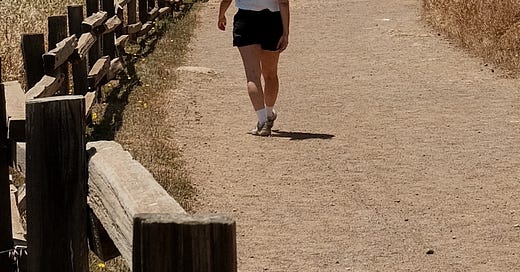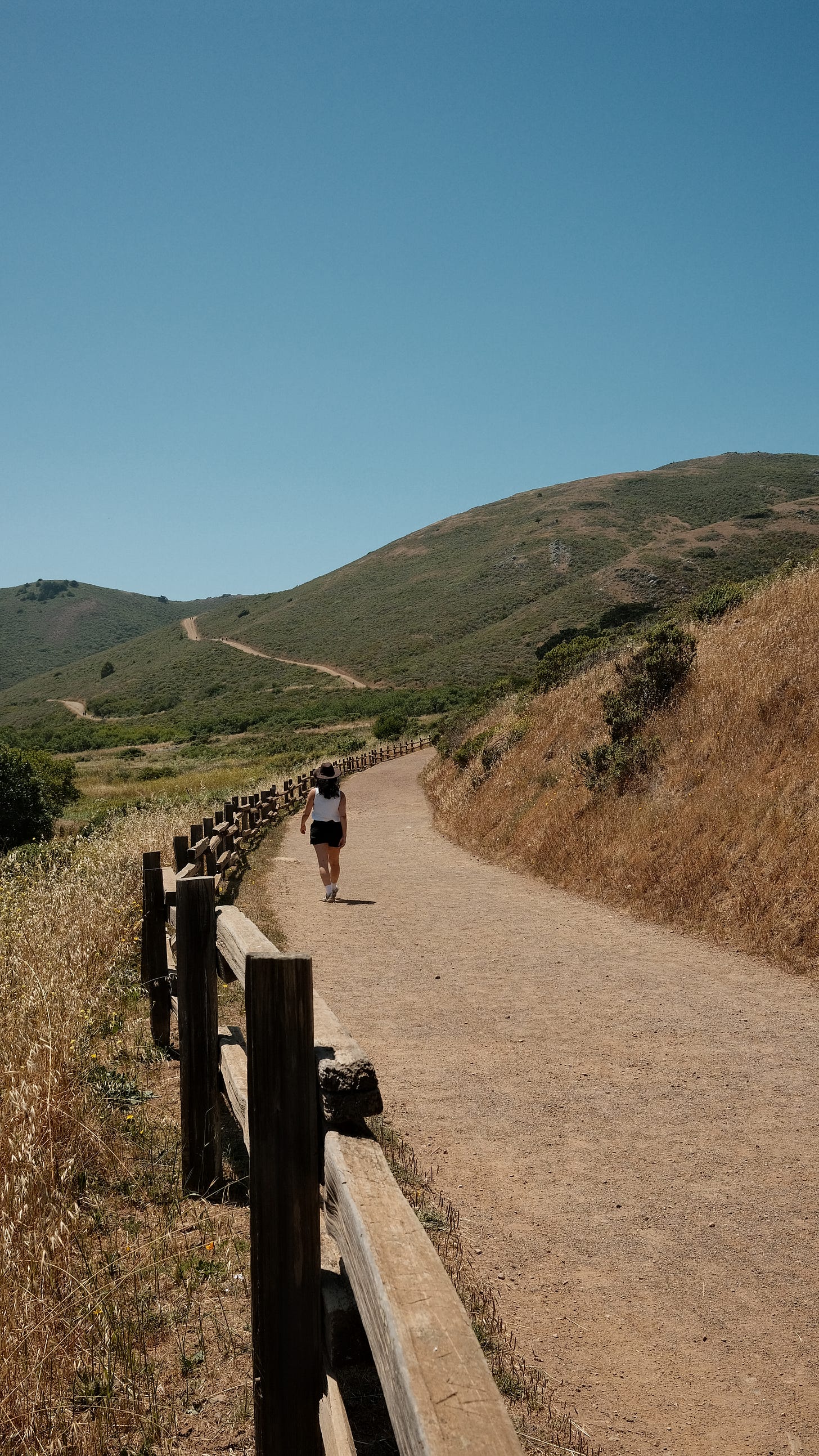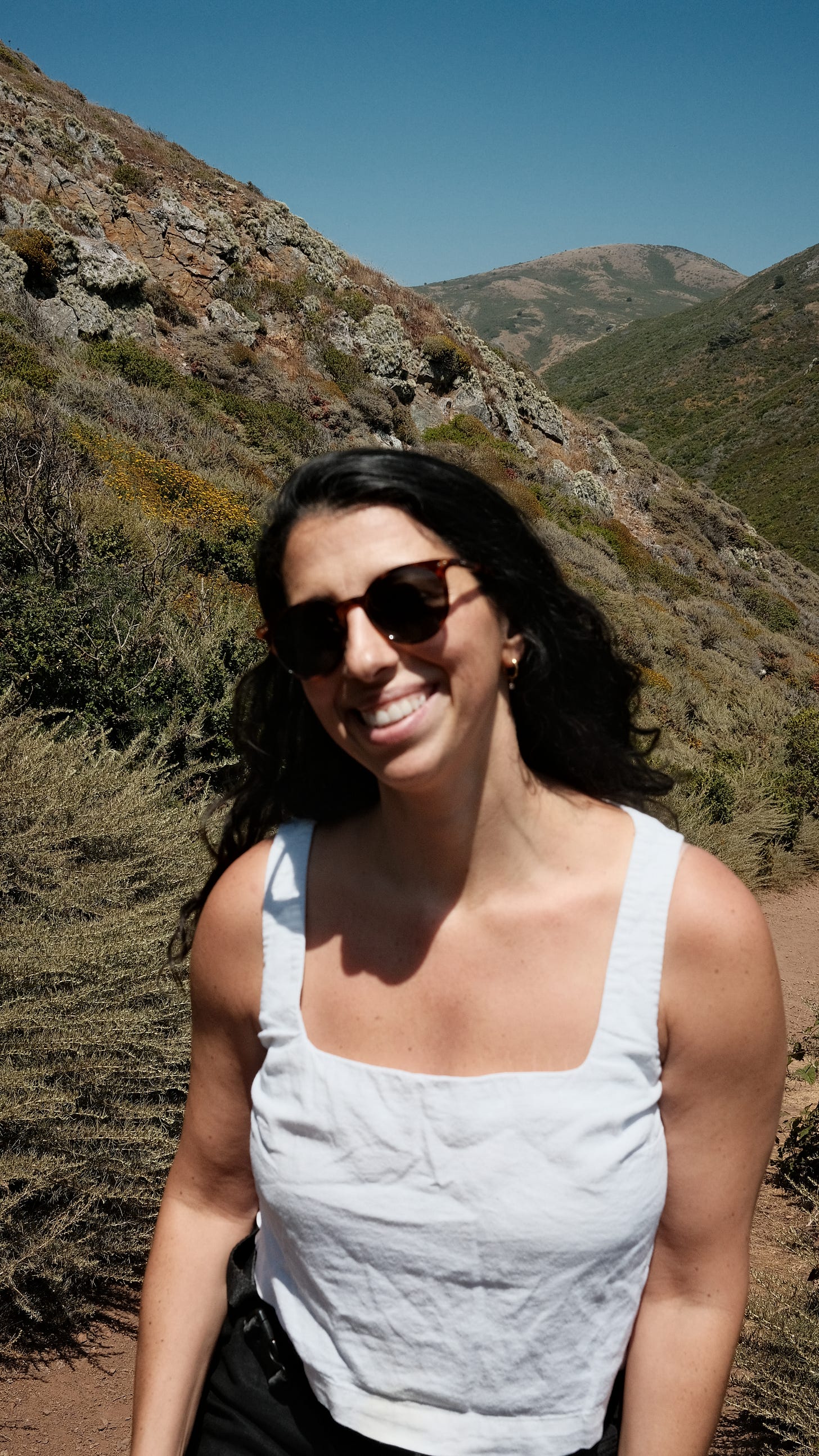Last week on the podcast, Bradshaw and I discussed how hashtags like #YogaEveryDamnDay, originally meant to celebrate dedication, can actually encourage unhealthy obsession, injury, and even burnout around the practice. And a kind of pressure that follows you off the mat and into the mirror.
Around 2015, at the height of Instagram’s heyday, I posted photos of myself in bikinis doing advanced postures on the beach at sunset. I was practicing every day, fresh out of teacher training, and just out of a toxic relationship where I’d been body-shamed and betrayed. Yoga made me feel good, “look good,” and forget the darker things lurking underneath. I was inspired by the bendiest people in class and the Alo influencers.
I remember seeing hashtags like #YogaEveryDamnDay and even #PracticeAndAllIsComing, a popular quote attributed to Sri K. Pattabhi Jois. It suggests that with consistent effort, transformation will naturally unfold. I applied this to the physical practice, pushing myself again and again.
But somewhere along the way, especially in the U.S., this became an obsession fueled by a “no days off” mentality. I know because I was part of it: I took the pictures, used the hashtags, and pushed myself relentlessly. Devotion turned compulsion, fueling a constant never-enough.
What looked like a healthy lifestyle from the outside was, in truth, a subtle form of oppression, wrapped in the language of “wellness.” For me, it led to injury, burnout, self-judgment, and shame.
We spoke at length about injury on the podcast, but only briefly touched on body image struggles, so I want to explore that more deeply.
Through the years, teaching yoga in this body has taken me on a rollercoaster of experiences. I carried self-limiting beliefs about not being fit or athletic enough to belong in this role. In my family, I was the “chubbier” one; in my friend group, I never excelled at sports. Teaching often stirred feelings of imposter syndrome, especially during a time when thinness, strength, and physical prowess were idealized. And when I leaned more into the bhakti path, I became acutely aware of the discomfort of being a white woman in a tradition not my own, and the many layers of cultural appropriation that can accompany that.
My weight has fluctuated, and I’ve noticed that when my body is larger, some students seem surprised by my strength, as if softness and strength can’t coexist - or perhaps because I didn’t look like the influencers flooding social media. When I’ve been leaner, I’ve received praise that pressured me to maintain a version of myself that didn’t always feel natural or sustainable.
Underneath it all, I absorbed the message that the other version of me must have looked “bad,” because no one praised her. I really internalized the belief that my natural body didn’t look like a yoga teacher.
It’s a strange thing… knowing your body is being read before you.
If I wear oversized shirts to hide myself, I’m underestimated. If I wear sports bras like many other teachers do, I risk being sexualized. And from experience, while my classes may fill, so does my self-consciousness.
The irony isn’t lost on me: while I guide others toward wholeness, I’m still learning how to feel it myself. Still trying to be okay in my body, not just sometimes, but always with all its ups and downs.
I’ve tried to 'fit the part:' buying matching sets, dieting, chasing the ‘harder, faster, stronger’ ideal. A propaganda I fell for both as a student and a teacher.
I pushed past my natural boundaries. And if I’m being honest, I sometimes pushed my students past theirs, too. Maybe because, somewhere deep down, I assumed they were there to push, strive, and prove something, like I had. Because that’s what our culture rewards.
And I got praised for It. The harder my classes were, the more admiration I received.
In a culture that glorifies no days off, that rewards thinness, hustle, and busyness, even in the so-called “wellness” world, it’s no wonder we burn out. No wonder we injure ourselves. No wonder rest feels like failure.
Even as I work to unlearn these patterns, the residue remains. While healing from long COVID, navigating autoimmune symptoms, and working through childhood trauma, I still criticize myself for not doing enough. I still feel shame about my body’s changes. And I’ve felt like a fraud showing up to teach, especially during seasons when I wasn’t practicing myself, because what I really needed was rest. At times, I still ask myself: Am I allowed to be here?
I see now that this is the result of deep conditioning, a system designed to sell us skincare, supplements, protein powders, gym memberships, cosmetic procedures… and an endless cycle of self-fixing.
I’m trying to meet myself with more grace. Especially when I’m picking myself apart, I try to remember that despite everything I’ve been through, my body still functions. And that is a blessing.
Week to week, I hold space for others. I teach acceptance, honoring your body, and meeting yourself where you are. While I believe this deeply, I’m still learning how to listen to It myself- to let my body be a body, not a brand.
It’s the reason I named my school Come As You Are. I want students to feel safe in their skin, just as much as I crave to feel safe in mine.
Teaching means staying inspired and open to growth. And while I’ve understood many of these concepts intellectually, I haven’t always embodied them. We can’t model safety if we’re still at war with ourselves.
But I’ll keep practicing, just not the way I used to…
Yoga is one tool in my wellness belt, and it’s so much more than just the physical. It does not have to be physical every damn day. Instead, I can lean into the Yamas and Niyamas, as I find contentment (Santosha) and reduce mental self-harm (Ahimsa).
What matters most to me now is practicing with intuition. Practicing moderation. Honoring both effort and ease. Nourishing myself instead of pushing to prove something. Showing up from love, not compulsion or punishment. And offering something only when it’s real.
I’ll keep asking the harder questions, of myself, of this industry, and of the culture we live in:
What does it truly mean to “practice every day”?
To me, it means just living. We are all here in these bodies for the first time, learning what it means to care for ourselves. Part of that practice is observing when our minds betray us, listening when our bodies say no, and knowing what we actually need moment to moment… including rest days.
If this resonates, I see you. And I hope you know: you don’t need to prove your worth through how you look, through pain, through poses, and least of all, perfection.
You can come as you are.
Always.
Check out the latest Podcast Episodes:






